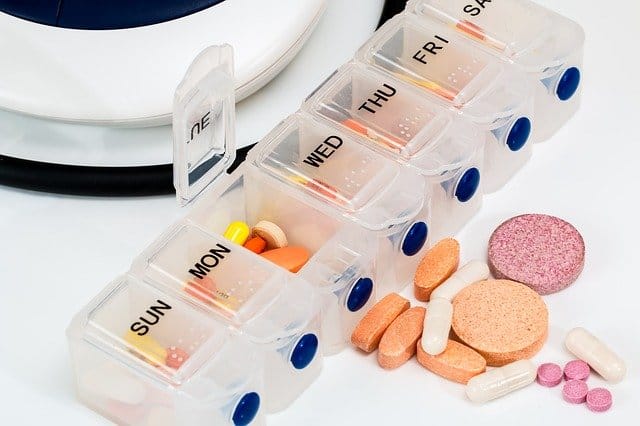Taking certain foods together with medicine can make the body not absorb them properly. This is the blacklist against drugs
When we follow a medical treatment based on the consumption of drugs, many patients wonder what is the ideal time to ingest the corresponding dose and if it should go before, after or during the meal. A factor that, although it seems harmless, greatly affects the final result of the process.
Have you ever heard of the food–drug interaction? This is the name that is used to refer to the alteration suffered by the action of drugs when they come into contact with certain nutrients, thus reducing their effect on the body or even causing side effects.
“It is very important that we bear in mind that interactions can occur, not only with the drugs that the doctor prescribes but also with those that do not need a prescription (diet, herbal products, vitamins, mineral supplements, etc). We must always inform the doctor and pharmacist about everything we are taking and they will give us the necessary instructions and advice,” as explained by the experts.
Then, how should we follow the treatment correctly?
Relationship between drugs and foods
As we have seen above, depending on the medicine that has been prescribed, its consumption must be before, during or after meals. For example, when Doctors recommend taking the daily dose on an empty stomach, “it means that it should be taken at least one hour before eating or at least two hours after eating. If medicines are not taken as recommended, it will not be absorbed correctly by the stomach and it will lose its effect,” Experts clarify.
On the other hand, if the doctor advises us to always follow the treatment during the meal, it means that we should take the drug while we eat or just after finishing lunch. If we do not meet this requirement, and being on an empty stomach, the drug will not be absorbed properly and we run the risk of stomach pain, nausea or even vomiting. On the contrary, when it is a question of a medicine that cannot coincide with some type of food, we must keep a gap of about two hours between both doses to avoid any trace in the stomach. Knowing now all these inquiries, what foods should we avoid while we are on medication?
Food versus drugs
- Analgesics or Painkillers: In this case, we are dealing with a drug of the most effective against muscle pain, headache or any other kind, ibuprofen being the most used variety. As many of you already know, this substance should not be mixed with carbonated beverages since carbonic acid gas increases the concentration of the medicine in the blood, which can cause poisoning or damage to the kidneys.
- Antidepressants: The drugs in the MAO inhibitor group (tranylcypromine, phenelzine, nialamide) should avoid being mixed with meats, fish, cheese or dry sausages, as these medications when in contact with tyramine can critically increase the pressure.
Pain relievers should not be mixed with carbonated drinks, as they increase their concentration in the blood
- Anticoagulants: Prescribed to cure and prevent thrombosis, warfarin clashes with all those foods that contain vitamin K such as, for example, cabbage, chard, spinach, parsley, Brussels sprouts, cauliflower, broccoli or romaine lettuce and green leaf. In the case of consuming both substances together, the patient may increase the risk of bleeding.
- Antacid: As their name suggests, these drugs neutralize the acid that the stomach produces when we eat. For this reason, it is recommended to avoid foods that tend to irritate the stomach such as garlic, spices, fruit juices and caffeinated drinks such as tea, coffee, chocolate or soft drinks.
- Medicines to lower blood pressure: These are part of the daily routine of those who suffer or are at risk of heart and kidney disease. The main function of these drugs is to increase the amount of potassium in the blood. To avoid an overdose, during treatment you should limit the consumption of potatoes, bananas, spinach, tuna, beets or Brussels sprouts, all rich in this nutrient.
- Medicines to lower bad cholesterol: The mixture of citrus fruits with this class of drugs can also cause a kind of overdose. Atorvastatin, fluvastatin, lovastatin, simvastatin, rosuvastatin and pravastatin are indicated for obesity, diabetes and cardiovascular diseases. Foods that should be avoided mixing with this medicine are citrus fruits such as oranges, lemon, lime or grapefruit, concludes the experts.
